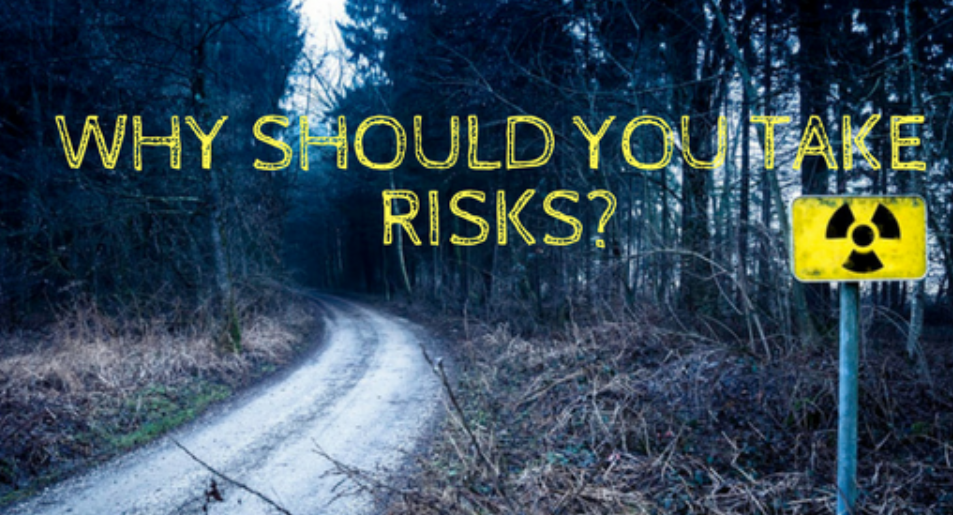


A business risk is a future possibility that may prevent you from achieving a business goal. The risks facing a typical business are broad and include things that you can control such as your strategy and things beyond your control such as the global economy.
If you aren’t prepared to take risks, you have no business being an entrepreneur. Entrepreneurship is fundamentally linked to risk-taking. You’ll need to invest some of your personal capital into a growing business -- in most cases. You’ll stake your reputation on an unproven idea. You’ll sacrifice a steady paycheck for the first several months to a year -- again, in most cases.
And from there, every decision you make carries some small risk -- your new hire might leave in a month, your lead generation strategy might fail, your new approach might anger one of your best clients, and so on. Accepting risk as a part of the deal, and you need to be ready for that as you enter the entrepreneurial world.
I’m not just referring to “big risks” and “small risks” here -- though those exist, too. There are calculable risks, which involve a series of knowns that allow you to reasonably predict the odds of success. For example, you might be able to infer from historical data that there’s a 30 percent chance a tradeshow’s attendance will dip to a point that makes your attendance unprofitable.
There are ambiguous risks, which involve some knowns and some unknowns, which complicate your decision making process. Most business risks fall into this category, because so many factors, like consumer behavior and economic shifts, are difficult to quantify or predict. Then there are complete unknown risks, which arrive when you bring something truly unique to the market. Knowing the differences between these risks can help you better understand how “risky” your decisions at certain points actually are.
The optimistic risk-taker will always see things as half-full, a 50- percent rate of success is “pretty good odds” and a 75 percent rate of success is a “sure thing.” This is compounded by the cultural idea that risk taking is generally a rewarding strategy... However, don’t be fooled into thinking that all risks are good risks or that always taking the risky option will pay off.
Some risks -- even carefully calculated ones -- will fail. Instead of ignoring this fact to overcome your apprehension toward risk, embrace it. Let yourself accept the possibility of failure, and when you do fail, don’t take it personally -- learn from the experience and move on.
There are two inherent biases in the human mind that skew our perceptions of risk. The first is that we tend to exaggerate the possibility for failure. In raw estimates (with limited numerical data), people tend to pessimistically predict failure more than real situations would warrant. The second is that we greatly exaggerate the consequences of those failures -- we envision the worst-case scenario, when the reality is far more manageable.
Keep this in mind when imagining the negative possibilities associated with your risks.
Some risks offer the promise of higher value. Some risks offer smaller potential consequences than others. Some risks could make or break your business. But there’s one key element all risks have in common: They’re differentiators. Because most people are unwilling to take risks, the risk-takers of the world naturally stand out in the crowd, and as we all know, entrepreneurs and businesses that stand out are the only ones with a shot at breakout success.
Even if you end up failing, you’ll end up “failing in style,” so to speak -- and you might reveal more opportunities for yourself just because you were willing to stand out and break away from the norm.
Hopefully, these facts have transformed your perceptions of “risk” as a general concept, even if only slightly. It takes time to get to know the complexities and nature of risk, and even more time to get comfortable taking them, but eventually it will become second-nature to you. Focus on the known factors when you can, accept ambiguities -- and understand that failure is never the end of the road.

